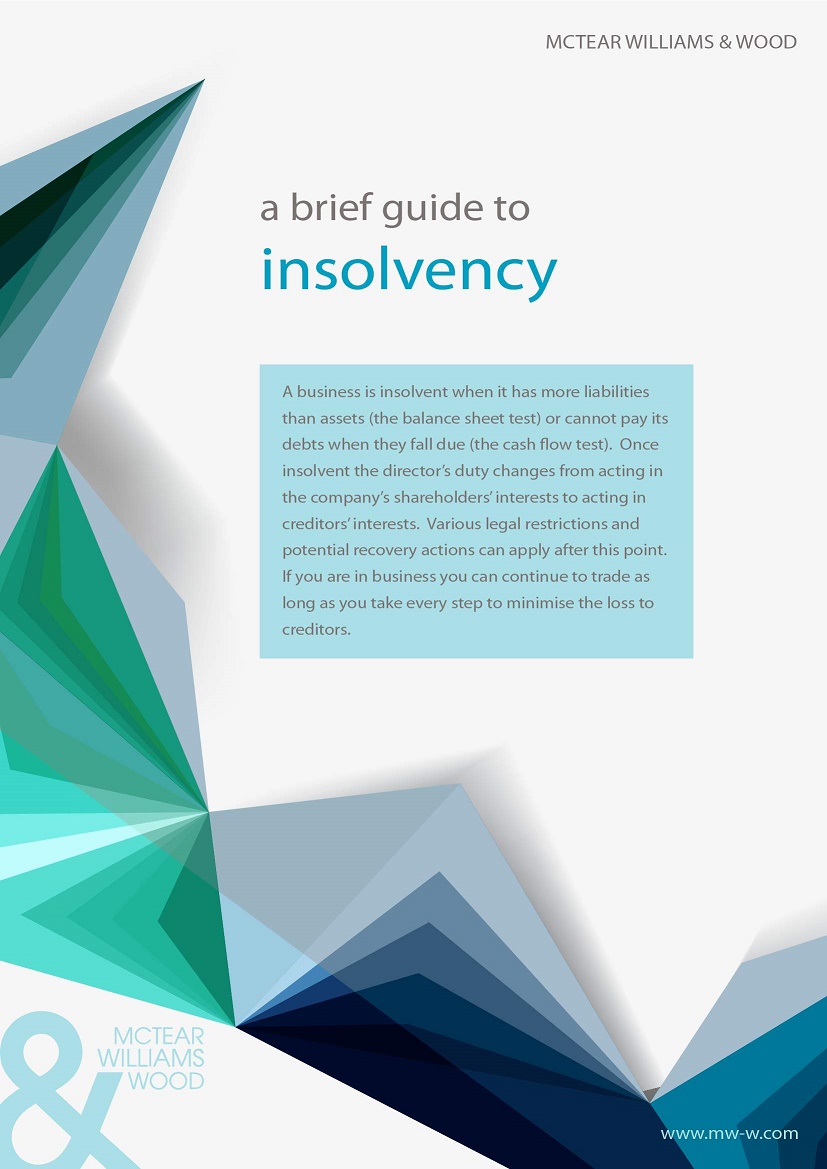Should you give a personal guarantee?
Personal guarantees ("PG's") are often given when a business is growing. It seems easy after all, you believe in the future of the business and what could go wrong? Maybe nothing will go wrong but then again maybe it might. So before giving a PG follow the advice below. If you are asked to give a PG because business is bad be very cautious and examine other options first.
Who seeks a director's personal guarantee and why?
Usually invoice discounters, banks and some trade suppliers. They want your company's business but also want to tie you in personally too. Why would that be? Because they are risk adverse - and so should you be. Sometimes the main purpose of a PG is to ensure you stick around if the business fails. This is especially true of PG's given to factors who are going to need your help to collect the debts.
Do your own due diligence
By a giving a PG you will be underwriting the lender if the Company won't pay. So look at your business as you would an investment to help you work out the risk of the PG being called by answering:
- Are you the only available guarantor? Your business partners/co-owners share the upside and should share the risks too.
- Is the business profitable?
- Does it have enough working capital?
- Are additional funds being advanced and what will the funds be used for?
- Have you seen the latest accounts and cashflow forecast? Do they make sense?
- Give the business the traffic light test
- How long will you be at risk for?
If you can't answer these questions talk to your accountant or if you don't have an accountant talk to us.
Seek to minimise the risk of it being called on
Firstly the basic rule is don't give a PG if you can avoid it. If you can't avoid it then:
- Seek to limit the value of the PG and put a time limit on it eg if the loan is for 12 months the PG should expire then - old unrestricted PG's can come back and bite you!
- If possible seek to limit the scope of the PG to a particular transaction or loan and ensure the documentation reflects that situation.
- If the amount is substantial insist that the funder takes out a debenture over the assets of the company as in the event of an insolvency this will give the lender a prior claim on the Company's assets.
- Make sure that you retain all the documentation associated with the granting of the PG - it may later provide a reason to question its validity.
- If you have already given an unrestricted PG then look at alternative sources of finance to repay the debt and gain release from the PG. If you cannot refinance depending on your negotiating position request a review to seek its release, a reduction or establish an expiry date
If you are faced with a demand for payment under a PG
- Do not panic - most creditors will give time to pay or refinance.
- Work with the funder and/or liquidator to maximise the value of the assets.
- If the Bank want to appoint administrators over the company don't just accept the Bank's choice of IP - they may be more expensive and eat into the assets available to repay the debt - choose your own IP to advise the Company.
- If you have repaid the guarantee in full exercise your right to stand in the lender's shoes so you can make a prior claim over any remaining assets in their place.
- Come and speak to us at McTear Williams & Wood - we can review the validity of the PG and help you negotiate a substantial settlement discount.
If you would like to know more about our turnaround or insolvency services for businesses or individuals or wish to discuss any specific issues concerning underperforming businesses contact us on 0800
331 7417. We are happy to have an initial confidential and charge free meeting either face to face, on or off your premises or over the telephone.



